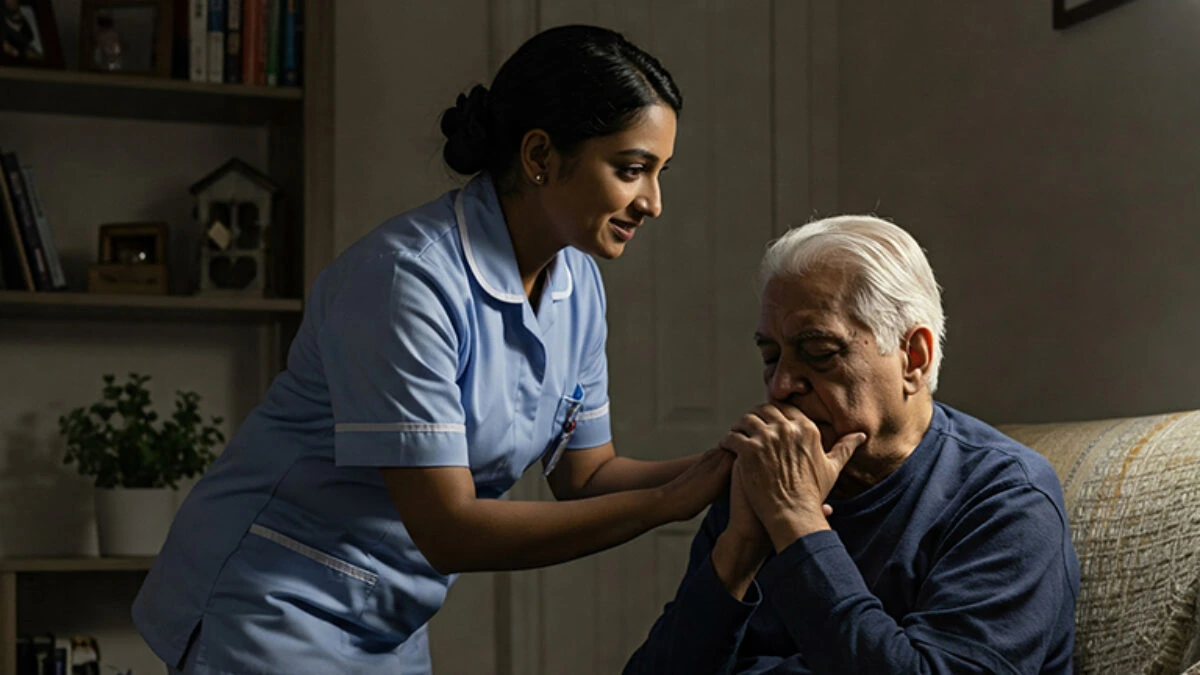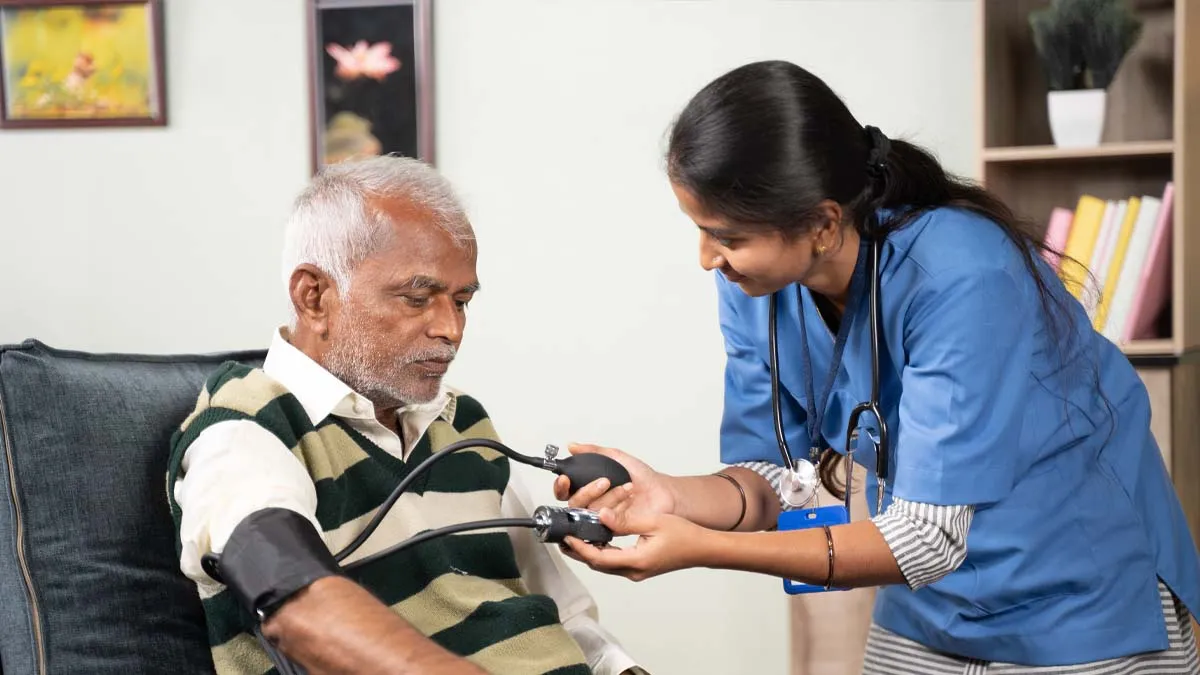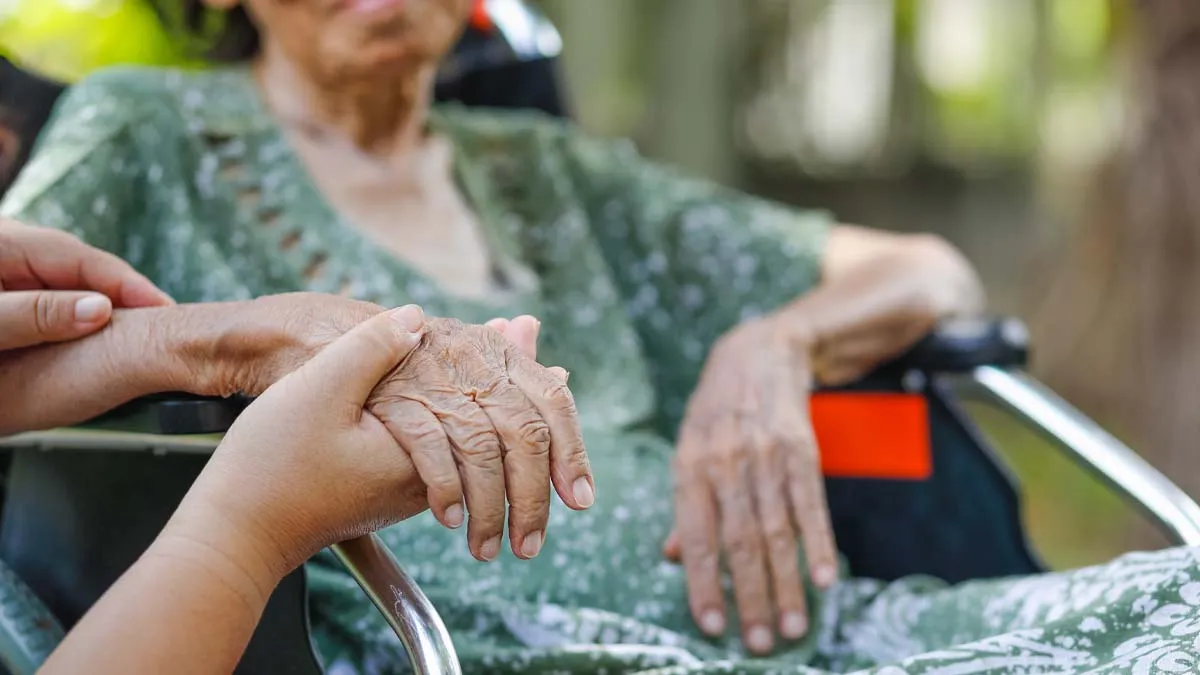The Impact of Weather: Seasonal Elder Care Tips

Published on June 14, 2024
Weather changes significantly impact seniors, especially those receiving home care. Seasonal shifts bring unique challenges and opportunities for maintaining health and well-being. Here are practical tips for ensuring the safety and comfort of seniors throughout the year, focusing on how to adjust elder care practices according to different weather conditions.
Monsoon: Preparing for Rainy Weather
- Fall Prevention: As the rains come and surfaces become slick, the safety of elderly loved ones becomes a top priority. Let’s prevent falls by keeping walkways clear of leaves and debris. Installing non-slip mats and grab bars in bathrooms and other potentially wet areas can offer invaluable support.
- Warmer Clothing: With the temperature dropping, it’s important to keep warm. Ensure they have access to warm clothing, blankets, and perhaps even an electric blanket for those particularly cold nights. Layering is key to managing varying temperatures throughout the day.
- Flu Vaccinations: Get your elderly loved ones vaccinated against seasonal influenza before the rainy season starts. A healthy diet and regular hand washing are also key to staying well.
Summer: Heat and Hydration
- Hydration is Key: The hot summer months can lead to dehydration, which is particularly dangerous for the elderly. In senior care, it’s important to encourage them to drink plenty of water and avoid caffeinated or alcoholic beverages that can dehydrate them further. Fresh fruits with high water content, like watermelon and cucumbers, are great options.
- Cool Environments: Ensure that their home is cool and comfortable. Fans, air conditioning, and keeping curtains closed during peak sun hours can help maintain a cool indoor environment. If they don’t have air conditioning, consider spending time in public places like libraries or shopping malls during the hottest parts of the day.
- Sun Protection: If they spend time outdoors, ensure they use sunscreen with at least SPF 30, wear wide-brimmed hats, and light, breathable clothing to protect their skin from harmful UV rays.
Winter: Cold and Isolation
- Staying Warm: Hypothermia is a real danger for the elderly in winter. Ensure their home is insulated, provide sufficient heating, and encourage wearing multiple layers, gloves, and socks.
- Preventing Isolation: Winter weather can lead to isolation due to difficult travel conditions. Regular phone calls, video chats, and visits when possible can help combat loneliness. Community programs or senior centers often offer activities and social opportunities.
- Nutrition and Exercise: With less sunlight exposure, Vitamin D levels can drop. Ensure they get enough Vitamin D through diet or supplements as recommended by their doctor. Gentle indoor exercises like stretching or yoga can help maintain mobility and health.
General Tips for All Seasons
- Regular Check-Ups: Regular medical check-ups are crucial for early detection and management of health issues. Encourage routine visits to the doctor and keep a check on their medication needs.
- Emergency Preparedness: Regardless of the season, ensure they have a list of emergency contacts and a plan in place for emergencies. This includes having enough medication, food, and water to last a few days if needed.
- Mental Health: Seasonal changes can affect mood and mental health. Encourage engaging in hobbies, maintaining social connections, and seeking professional help if needed to manage stress, anxiety, or depression.




